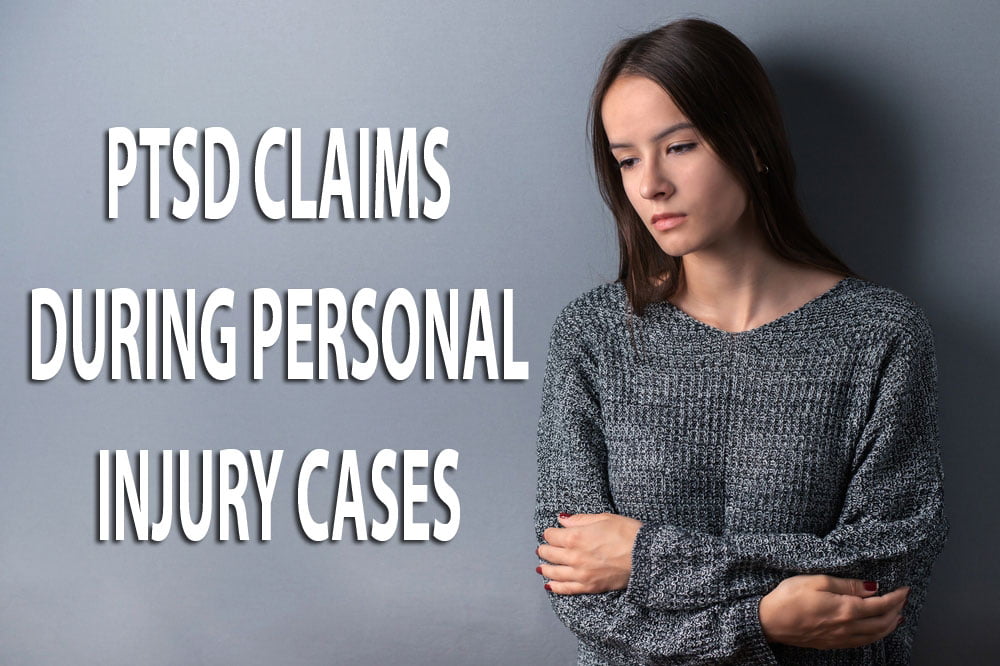There are a few different conditions or disorders that may arise from various traumatic events, and one that’s somewhat well known is PTSD, or post-traumatic stress disorder. Can PTSD symptoms be considered part of personal injury cases when a claim is being made against another party for a given incident?
At the offices of William Rawlings & Associates, we assist clients around Salt Lake City, Draper, Provo and nearby parts of Utah with all their personal injury attorney needs, covering cases ranging from car and truck accidents to dog bite injuries, child injuries, wrongful death and more. We’re here to tell you that yes, PTSD symptoms can often be included as part of your claim against another party for negligence or other liability – our attorneys will be happy to walk you through this entire process if you believe PTSD to be part of your symptoms. Here are some basics to keep in mind if your case may include this sort of thing.

Two Kinds of PTSD Claims
There are two broad types of PTSD claims that may be used in personal injury cases:
- Personal injury claims: By far the more common of the two types, broad personal injury claims related to PTSD can include everything from car or truck accidents to slip and fall injuries, product liability cases or any other instance where an individual has suffered physical injury due to the negligence of another party. Within this area, you may claim damages for both physical injuries like broken bones and more mental or emotional harms like PTSD.
- Social Security Disability Insurance (SSDI) or Veterans Disability (VA) claims: In other cases, PTSD’s effects can be lasting and severe enough to qualify for benefits through government programs like SSDI or the VA. This is often the case in veterans returning from combat, who may have seen a number of traumatic events that lead to PTSD and related issues.
Properly Documenting PTSD
If you believe you may be suffering from PTSD related to a given incident, the first step is always seeking proper medical care from professionals who can properly diagnose and document your condition. This documentation will be key in any personal injury case where PTSD is involved – without it, proving that you’re owed damages for this type of pain and suffering will be very difficult.
This documentation may include:
- Medical records: Including any diagnosis of PTSD from your doctor, as well as documentation of any treatment or medications you’ve received for this condition.
- Notes from a therapist or mental health professional: If you’re seeing someone regularly to manage your PTSD symptoms, they can provide valuable documentation and testimony for your case.
Proving PTSD
When it comes to actually proving that PTSD was caused by a given incident or series of incidents, the burden is on the plaintiff (you) to do so. This will generally come down to testimony and documentation from medical professionals, along with any other evidence you can provide.
There are a couple witness types you may utilize here, depending on the specifics of the case:
- Fact witness: This sort of witness is someone who directly observed the traumatic event in question, or was present for it. They can provide firsthand information about what happened and how it impacted you.
- Expert witness: In some cases, a medical expert may be called upon to testify that your PTSD symptoms were caused by the incident in question – they’ll review all relevant evidence and tests to make this determination.
For instance, a therapist is a common example of an expert witness in PTSD cases, providing valuable insight into the origin and impact of your symptoms. A therapist may be called to testify that your PTSD symptoms are a direct result of the traumatic event in question, as well as to explain how these symptoms have impacted your daily life and ability to function. This testimony won’t necessarily be the only or even the largest factor in proving your case, but it will play a significant role in convincing the court that you’re owed damages for these symptoms.
In addition to expert witnesses, other evidence like medical records, personal journals or even testimony from friends and family can also help support your claim for PTSD in a personal injury case.
The key is building a strong case with all the necessary documentation and testimony, which is something our attorneys excel at here at William Rawlings & Associates. We’re proud to help clients secure the compensation they deserve for all their personal injury needs, including those related to PTSD and other trauma-induced conditions. So if you believe that your PTSD symptoms are a result of someone else’s negligence or wrongdoing, don’t hesitate to reach out to us for assistance in building your case – we serve clients around SLC, Draper, Provo and nearby parts of Utah.